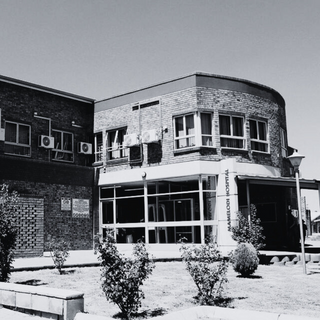World Schizophrenia Day – 24 May
Schizophrenia is one of the most misunderstood mental health conditions, often portrayed in the media as something that robs people of their dignity, ability, and future. The truth, however, is very different.
At Hospivision, we believe in dignity, hope, and recovery. On World Schizophrenia Day, we want to share a message of truth, awareness, and compassion for those living with schizophrenia—and their families.

What is Schizophrenia?
Schizophrenia is a chronic mental illness that affects the way a person thinks, feels, and behaves. It affects about 1 in 100 people and usually begins in early adulthood, but it can occur at any age.
Despite the myths, schizophrenia does not mean “split personality.” The name comes from the Greek words schizo (split) and phren (mind), referring to a disruption in the way thoughts, emotions, and behaviour connect—not to multiple personalities.
Common Symptoms
Symptoms of schizophrenia are usually grouped into two categories:
-
Positive symptoms (adding something to behaviour): hallucinations, delusions, disorganised speech or behaviour.
-
Negative symptoms (taking away something): lack of motivation, difficulty with emotional expression, social withdrawal, reduced speech.
Cognitive challenges, such as trouble concentrating or understanding information, may also be present. These symptoms vary greatly from person to person.
The Truth About Treatment and Recovery
Schizophrenia is a serious illness, but it can be treated. Many people go on to live full, meaningful lives. With the right support and medical treatment, people with schizophrenia can:
-
Hold jobs
-
Maintain long-term relationships
-
Be loving parents
-
Participate fully in society
Treatment options include:
-
Antipsychotic medication, which helps correct chemical imbalances in the brain.
-
Talking therapies like cognitive behavioural therapy (CBT).
-
Occupational and lifestyle support, including routine, exercise, and social engagement.
Schizophrenia is a chronic illness, so lifelong treatment may be necessary—much like diabetes or hypertension. Antipsychotic medication is not addictive and does not make people “high.” It helps stabilise the brain, and suddenly stopping it can cause relapse, not because of addiction, but because of the illness itself.
Tackling the Stigma
One of the biggest challenges people with schizophrenia face is stigma. Too often, society labels them as “dangerous” or “unstable.” The truth?
People living with schizophrenia are far more likely to be harmed by others than to harm anyone.
Media portrayals often exaggerate or distort the reality of schizophrenia. These stereotypes create fear, shame, and silence—preventing people from seeking help early. In fact, early diagnosis and treatment greatly improve the chances of recovery.
“I’ve been married 20 years. I’ve got two grown-up stepchildren and two teenage daughters. My story demonstrates that you can still live a fulfilling, happy life despite schizophrenia.”
— Paul, living with schizophrenia
Schizophrenia Can Affect Anyone
There is no single cause of schizophrenia. Risk factors may include a family history of the illness, early life trauma, or substance use—but many people with these risk factors never develop schizophrenia. And many who are diagnosed have never used illicit substances.
It is not caused by bad parenting, weakness, or spiritual failure. It is a medical illness that can happen to anyone—lawyers, accountants, celebrities, teachers, neighbours.
“You have likely met someone with schizophrenia and never known it—just like any other chronic illness.”
If You or a Loved One Needs Help
Early signs of schizophrenia may include:
-
Withdrawing from friends and family
-
Unusual or paranoid thoughts
-
Seeing or hearing things others don’t
-
Disorganised speech or behaviour
If you notice these signs, seek medical help as soon as possible. Just like with physical illness, early treatment leads to better outcomes.
Support:
-
SADAG Suicide Line: 0800 567 567
-
SADAG Mental Health Crisis Line: 0800 456 789
-
Akeso Psychiatric Response Unit: 0861 435 787
-
SAPS (Police): 10111
-
Ambulance (from landline): 10177
-
Emergency (from cellphone): 112
-
Netcare 911: 082 911
-
ER24: 084 124
If you're unsure what to do, go directly to your nearest designated provincial hospital or call one of the helplines above.
Let’s Change the Narrative
Schizophrenia is not the end of the road—it’s a condition that can be managed with care, support, and dignity. This World Schizophrenia Day, let’s break the silence and the stigma. Let’s listen to real stories, spread the truth, and open the door to hope.
If you or someone you love is living with schizophrenia, you are not alone. You are not broken. And recovery is possible.
Sources:
-
Rethink Mental Illness. The Truth About Schizophrenia. https://www.rethink.org/campaigns-and-policy/awareness-days-and-events/national-schizophrenia-awareness-day/the-truth-about-schizophrenia/
-
South African Depression and Anxiety Group (SADAG). Schizophrenia – Facts & Myths. https://www.sadag.org/index.php?option=com_content&view=article&id=3032:schizophrenia-facts-myths&catid=85&Itemid=180
-
Family Support. Emergency Contact Information. https://familysupport.org.za/
- Global Mental Health Peer Network. https://www.gmhpn.org/our-services.html






